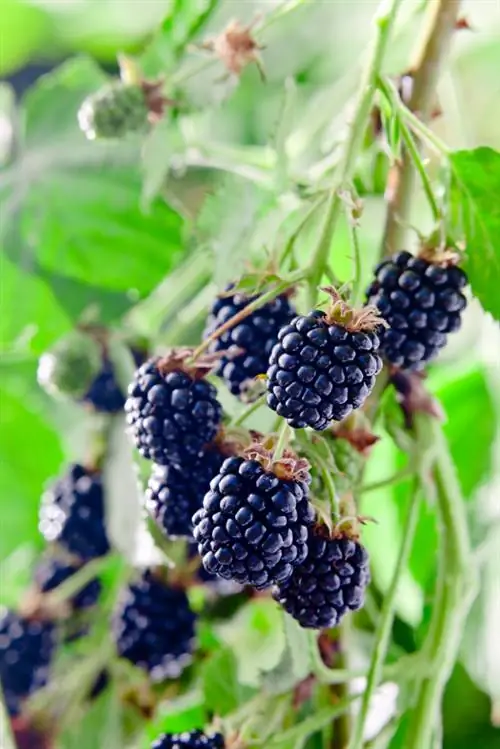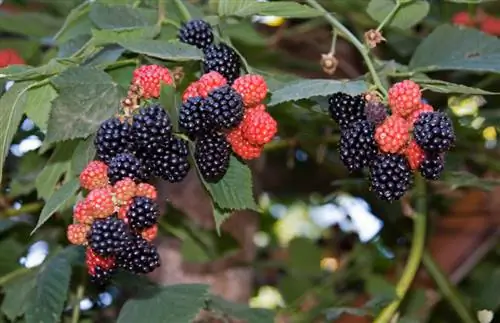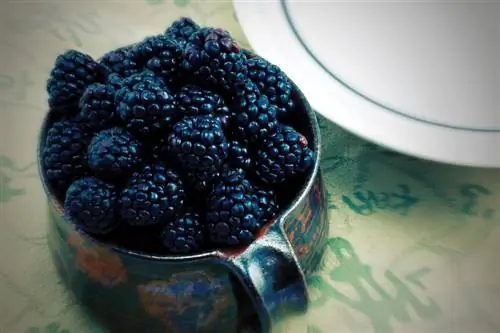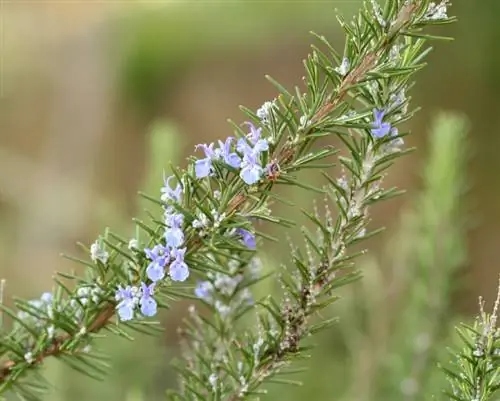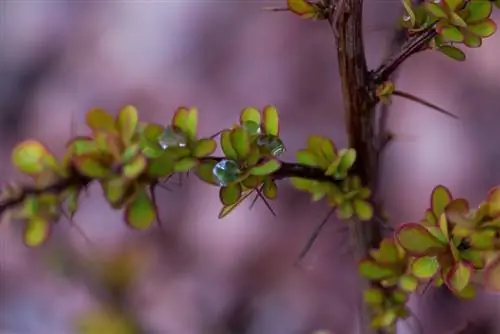- Author admin leonars@hobbygardeners.com.
- Public 2023-12-16 16:46.
- Last modified 2025-01-23 11:19.
Wild blackberries protect their sweet fruits from overly greedy sweet tooths with a multitude of protective thorns. This is why the name blackberry originally comes from an old word for thorn bush.
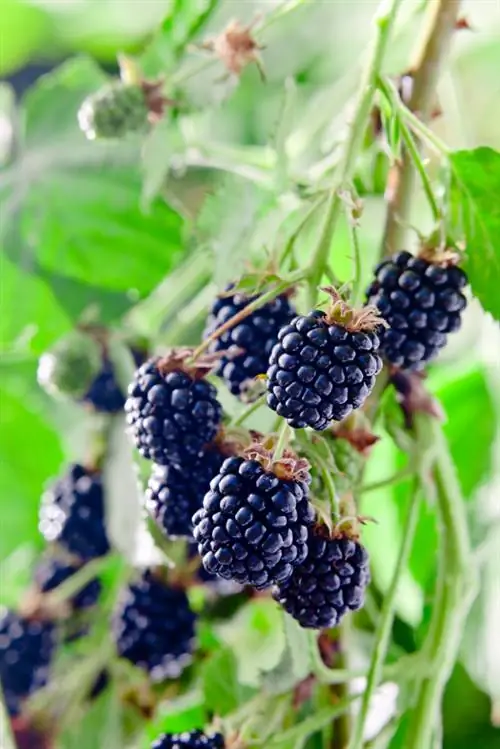
Which types of blackberries are there without thorns?
Modern blackberry varieties without thorns include Navaho Bigandearly, Little Black Prince, Navaho Summerlong and Tayberry. These species make gardening more pleasant and at the same time offer tasty fruits.
Thorns as protection for plants and fruit crops
With their thorns, wild blackberry vines have a defense mechanism that has been tried and tested for thousands of years. After all, the sweet blackberries do not grow on the vines in summer as an end in themselves, but rather serve for further reproduction and spread. This can be achieved even more extensively if the seeds of the blackberry plants are picked up by birds with the fruits and then released far away with bird droppings that are suitable as fertilizer. The thorns act like a reservation of the fruit for the birds, as they deter and deter other animals and people.
Modern cultivars and breedings without thorns
For commercial cultivation and cultivation in the garden, blackberry vines with thorns not only mean the need for protective clothing and gloves, but also occasional scratches and painful injuries. That's why blackberry varieties have been bred in recent decades that not only produce a higher yield of larger fruits, but also have few or no thorns on the tendrils. However, early breeding attempts such as the following varieties a few decades ago were inferior in taste and not entirely frost hardy:
- Thornfree
- Thornless Evergreen
- Black Diamond
- Black Pearl
These taste and climatological disadvantages have been largely offset by newer varieties of blackberries without thorns, for example:
- Navaho Bigandearly
- Little Black Prince
- Navaho Summerlong
- Tayberry
However, the Tayberry is not a black blackberry in the classic sense, but rather a cross between blackberry and raspberry with more red fruits.
Using thorny blackberry varieties to your advantage
Not all gardeners these days tend to use thornless blackberry varieties. After all, blackberries are often used like a hedge as a natural fence, with the sharp thorns protecting against unwanted intruders. To do this, the blackberry plants are planted in the garden along the property boundary on a trellis made of wooden stakes and tension wires, for which the Theodor Reimers variety is well suited.
Tips & Tricks
The tried and tested Theodor Reimers blackberry variety is not thornless like thornless blackberries from modern breeds, but the variety combines the advantages of large and aromatic fruits with the defensive strength of wild blackberry tendrils.

